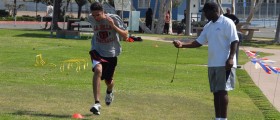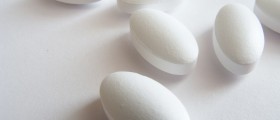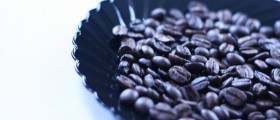
Once the creatine reaches the blood stream after being ingested, it gets transported into the muscles by means of transporter molecules which distribute it evenly across the surface of the muscles. The physiological status of a person determines the efficiency of those molecules and the implementation of creatine. The extramuscular sodium is in charge of regulating the activity of the aforementioned transporter molecules. Based on certain earlier studies, it was determined that caffeine may be very efficient in increasing the extramuscular sodium. So this is why scientists thought that caffeine may actually come in very handy in enhancing the transport of creating into the muscle cells and actually improving all the benefits of creatine. This could not be further from the truth. In fact, it is quite the opposite.
The Study
A study was conducted in order to define whether caffeine may affect the benefits provided by creatine in its supplemental form. The study involved a crossover approach, which means that all the participants were divided into control and experimental groups. Each week the groups were switched and then tested again. The results of the study have shown that caffeine consumption actually has a negative effect on the benefits normally provided by creatine supplements. An interesting fact is that caffeine ingested in the form of capsules did not interfere with the increased amounts of muscular phosphocreatine which is commonly associated with the loading of creatine. The caffeine capsules actually did not interfere with the creatine transport to the surface of the muscles. The negative effects of caffeine only started kicking in and affecting creatine after it has entered the muscle cells and got converted to phosphocreatine.
A Possible Resolution
All opposing muscle groups contract and relax in unison, so they provide the possibility of coordinated movement. These muscles contractions and relaxations are caused by calcium in the muscles. When the calcium gets released, the muscle starts to contract. So it can be said that calcium is the signaling factor in the process. When the calcium gets reabsorbed into its internal storage sites, the muscle then relaxes. This process involves the use of abundant amounts of energy. This energy for the relaxation of the muscles is provided by phosphocreatine. The more phosphocreatine the muscles contain, the faster they will relax. Caffeine may be harmful by liberating internal calcium, which slows down the relaxation time. The conclusion is that caffeine should not be ingested before working out.

















Your thoughts on this
Loading...